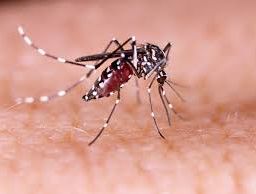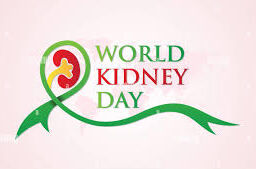
Understanding Genetic Risk: How Your DNA Influences Your Health
Delve into the intricate dynamics of genetic transmission as recent research sheds light on a compelling link between mothers and daughters in the realm of obesity risk. Unveiling insights from a comprehensive study in Denmark, we navigate through gender-specific patterns, exploring how maternal factors may influence the health inheritance journey. Join us in understanding the nuanced interplay of genetic factors in the transmission of obesity risk and the potential implications for future generations.

Obesity is a growing health concern worldwide, affecting both adults and children. It is caused by a combination of genetic, environmental, and lifestyle factors. Recent research has shown that women with obesity may pass on the risk for the disease to their daughters, but not their sons.
Overview of The Obesity Genetic Transmission Study
A study published in the journal Obesity analyzed data from over 100,000 mother-child pairs in Denmark. The researchers found that mothers with obesity were more likely to have daughters who also developed obesity, but this was not the case for sons. The study also found that the risk of obesity was higher in daughters whose mothers had a higher body mass index (BMI).
The Possible Explanations
There are several possible explanations for this gender-specific transmission of obesity risk. One theory is that it may be related to the way in which fat is distributed in men and women. Women tend to store more fat in their hips and thighs, while men store more fat in their abdomen. This may make women more susceptible to the effects of obesity on their offspring.
Another theory is that it may be related to epigenetics, which refers to changes in gene expression that are not caused by changes in the DNA sequence itself. It is possible that maternal obesity may alter the epigenetic marks on the DNA of their daughters, leading to an increased risk of obesity.
The Implications
The findings of this study have important implications for public health. They suggest that interventions aimed at reducing obesity in women may have a long-term impact on the health of future generations. It is also important to note that the risk of obesity is not solely determined by genetic factors, and that lifestyle factors such as diet and physical activity play a significant role.
In conclusion, the study provides valuable insights into the transmission of obesity risk from mothers to daughters. While the exact mechanisms underlying this phenomenon are not yet fully understood, the findings highlight the importance of addressing obesity in women as a public health priority. By doing so, we may be able to break the cycle of obesity and improve the health outcomes of future generations.
Disclaimer: The information provided in this content is for general informational purposes only. It is not intended as medical or healthcare advice, diagnosis, or treatment. Always seek the advice of a qualified healthcare professional with any questions you may have regarding a medical condition or healthcare decisions.
















